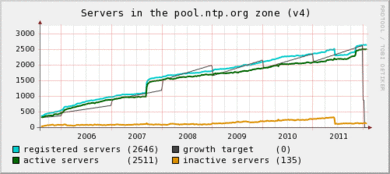The growing feeling that I'm a footsoldier in the ongoing Apple v Google v Microsoft v Amazon war is depressing. I stopped working at Google in 2006 but I only stopped loving it this month. I've frequently defended the company in public, explaining unpopular actions from what I imagine their side is. Google has often been in the right but the company is terrible at explaining itself. I felt with my understanding of the company I could do some good in clarifying the discussion. No more. This last month has been particularly hard for Google lovers. I took the company's side in the Kenya mobile fiasco up until the company admitted that, indeed, employees were lying to steal customers from Mocality. Then the big stories about Google Search+ and Google's new privacy policy. I think one is actively bad and the other is mostly harmless, but both changes are so complex and unpleasantly self-motivated it makes me sad. So now when I read about a friend getting terminated from AdSense with no explanation I just get a headache. I imagine half of my readers are smugly thinking "See, I told you Google was evil all along". I don't think that's right. In particular I refuse to give in to a cynical view of Google's "Don't be evil" motto; that ethos was very real, a sincere and important guiding principle. And if a big company like Google can't avoid being evil, then what world-changing enterprise can? But I think Google as an organization has moved on; they're focussed now on market position, not making the world better. Which makes me sad. Google is too powerful, too arrogant, too entrenched to be worth our love. Let them defend themselves, I'd rather devote my emotional energy to the upstarts and startups. They deserve our passion.
The NTP Pool is a vital but unappreciated Internet service. It runs quietly providing correct time to millions of computers all on a volunteer basis. A lot of the credit goes to Ask Bjørn Hansen who's been coordinating the project since 2005.
NTP is an old, simple protocol that lets one computer set its clock by the time on other computers. We take it for granted now, but before NTP was widespread computer clocks were often days off correct time (or worse, 3 seconds ahead). Microsoft and Apple both build NTP into their operating systems now and run their own NTP servers, but where do all the Linux servers get their time?  I love projects like this, where a small team can build a public resource that makes the Internet better.
I've switched this blog to explicitly serve everything in UTF-8 encoding. Before I didn't think much about it and confined myself to ASCII and hoped for the best. Now I can just type "François Rabelais or Björk Guðmundsdóttir or 艾未未" directly and not HTML entity escape it. If you notice any errors, please let me know.
I was surprised to learn there are at least four ways for a web page to declare their encoding. (Or charset, the terms are ambiguous.) Annoyingly the web server's HTTP header declaration overrides whatever encoding the document itself declares via a <meta> tag. I think that was back in the fantasy world where servers would negotiate content types and transcode on the fly. These days unless you're writing in Chinese or are a super-duper expert you should always be using UTF-8. Unrelated, thanks to Aristotle for finding a bug in the updated tags on my Atom feed. I'd hacked some Perl code and forgot how Perl scoping works.  There's an interesting analogy between Google Search+ and Microsoft Internet Explorer in the mid-1990s; let's hope it turns out better for Google.
There's an interesting analogy between Google Search+ and Microsoft Internet Explorer in the mid-1990s; let's hope it turns out better for Google.
In the early 1990s Microsoft didn't understand the Internet. Windows didn't even support TCP/IP, you had to download third party drivers like Trumpet Winsock to go online. And there was certainly no web browser, Netscape was going to sell that to users. Then in 1994–1995 Bill Gates executed an admirable turnaround at Microsoft with help from folks like Sinofsky and Allard. They quickly built a TCP/IP stack and a web browser and bundled it with Windows 95 and NT. Gates' memo The Internet Tidal Wave was the visionary document that explained it all. That rapid embracing of the Internet saved Microsoft as a company; they would have been doomed otherwise. In the late 2000s Google didn't understand social media. They had some clumsy efforts like Orkut and Buzz but you had to go to MySpace, Facebook, Twitter, LinkedIn, or RenRen to get social. Then in 2011 Larry Page executed an admirable turnaround at Google, with help from folks like Gundotra and Horowitz. They quickly built Google+ and bundled it with the primary search engine. There's no visionary memo about Google+ in public but you can bet they have a very clear and strong strategy internally. The rapid embracing of social media is unprecedented for Google; it's commendable. Microsoft's Internet strategy ended rather poorly for them. Their illegal, monopolistic actions finally met with an anti-trust investigation. The resulting settlement significantly weakened Microsoft's monopoly control and allowed room for companies like Apple and Google to flourish. Microsoft's still doing OK, but no one thinks of them as a major Internet innovator. (Despite having the only competitor for Google search in the US and Europe.) Will Google's social media strategy result in similar anti-trust fallout? I don't have the legal expertise to say. So far all the anti-trust action has been around ads, but that's expanding. Google seems to be leveraging their market dominance of search and ads to compete in social media. Hopefully Google's smart enough to not be saying things about cutting off Facebook's air supply. But they seem to have made the bold decision to set aside anti-trust concerns and just go for it. We'll see if that works for them, I just hope they act ethically and leave room for fair competition.
Disclosure: I used to work at Google but left there over five years ago. I have an interest in Twitter, a social media company.
We spend all day typing on keyboards. Most of those keyboards are awful; cheap switches, bad pitch, etc. But the layout is the worst problem. Either you have a giant 101 key keyboard that's too wide with a useless numeric keypad moving your mouse further to the right, or you have a small keyboard which has tiny arrow keys and loses the useful home, end, page up, and page down.
The layout that's just right is the 87 key keyboard, basically a 101 key layout but without the numeric keypad. It's not a common layout, Apple doesn't even sell one, but it's becoming more available. I have something like these Tenkeyless keyboards with mechanical switches and liked it, although I'm back to a full size Apple keyboard with a mouse platform that fits over the vestigial numeric keypad.
Now if only we could do something about CapsLock.  I just had a remarkably good service experience signing up for the JP Morgan Select Card (from Chase). I don't normally write testimonials for banks, but credit cards are a necessary evil and this one seems pretty good.
I just had a remarkably good service experience signing up for the JP Morgan Select Card (from Chase). I don't normally write testimonials for banks, but credit cards are a necessary evil and this one seems pretty good.
The key feature for me is it contains a European-style transaction chip for Chip and PIN processing. If you've ever been a poor American trying to use a gas pump or train ticket machine in Europe and been unable to do it, it's because the US credit card is way behind the times and doesn't contain a chip. Well, a few do now; this card has both a chip and a traditional magnetic stripe. Unfortunately it does not have a PIN, that'd be too standard, they call it "chip and signature". Which means I still sign at a restaurant, but in theory an unattended machine will just approve the transaction without the PIN. We'll see. The ordinary credit card features seem OK too. No foreign transaction fees. Some sort of reward points system whose details I didn't look into. Lots of consumer protections, etc. $95/year and 13.24% APR on purchases.
I finally left AT&T Wireless. Their service has literally not worked in my house or most of San Francisco for years. The iPhone would display 0–2 bars but over half the time calls and SMS would not go through. And pretty much anywhere I was in the US, calls would drop at random intervals. Web pages wouldn't load reliably, either. It's not just me: AT&T has a nearly 5% dropped call rate, 2–3x worse than the competition. And it's way worse in dense areas like San Francisco or New York.
I finally switched to Verizon after several friends said their iPhones worked better in San Francisco. So far so good. I show 2–3 bars. I can reliably make calls from my house, I can load data over the 3G network, SMS seems to work. A cell phone that can make calls! I just wish I'd taken the leap earlier. Ookla's speedtest.net app tells me Verizon gives me about 400kbps up and down for data at home. I've seen it go as high as 1500/800 and as low as 200/100 when I have better signal. More importantly the speed test has worked every single time I've run it. I can't even report AT&T speeds because the majority of the time, the test won't complete. Verizon voice quality also seems OK. Definitely has that talking-underwater quality when the signal is bad, but it's intelligible and, more importantly, doesn't drop. I don't understand how in 2012 AT&T's network is still so bad. San Francisco is an especially challenging environment but you'd think after years of the iPhone monopoly they'd have found a solution. Or at least owned up to the problem. Also confused as to why AT&T's 3G reliability is so bad: my experience was the link would either be great or dead, no graceful degradation. AT&T's goodbye to me after being a customer for eight+ years was to refuse to unlock my old iPhone 3GS and to refuse to refund a prorated amount for the last month. "Our corporate policy", they said, along with their policy of not providing a working service. Verizon's policy is to unlock after six months. Why did I stick with AT&T so long? Even my first experience with them was terrible. Stockholm syndrome, I guess.
San Francisco's biggest health insurer, Anthem Blue Cross (and its partner Express Scripts), no longer allows its customers to buy prescription medicine at Walgreen's California's largest pharmacy. Why? Anthem claims it's about price. Walgreen's says it's anti-competitive behavior. People like you and I could care less about this squabble between two giant companies: we just want to take the medicine our doctor says we need to stay healthy.
I now have exactly one pharmacy within a mile of my house I'm allowed to use. It's a spooky place, so I'm going mail order. Of course Anthem and Express Scripts are right there to make it easy to order my medicine directly from them. Which I did, because what alternative do I have? Apparently anti-trust law doesn't apply to healthcare. Capitalism does not work to provide health care efficiently. There can be no free market in healthcare: consumers are intensely limited by geography, insurance underwriting, and medical need. Regulatory requirements make competition from upstarts nearly impossible. The US spends 50%–100% more than every other industrialized nation on health care in total and spends just as much per-capita of public funds on health care as every European nation. But we have lower life expectancy. What we're doing now doesn't work.
I've migrated this weblog to a new host. You shouldn't notice any changes, if you're reading this post you're already reading it on the new server. But if you notice something wrong (or if it works and you feel chatty) please email me at nelson@monkey.org.
I'm a bit disappointed I haven't yet switched weblog software. I'm still using Blosxom, an idiosyncratic if capable Perl script I've been running for 8 years now. The only real drawback is lack of modern blog editing tools. The main reason I haven't switched is none of the hosted services have a good way for keeping my weird old URLs working. Also I've recently needed a real server in a datacenter for some projects so it's easier and cheaper to just move to a new host. The new server is at 208.110.64.210, hosted by Wholesale Internet in Kansas City. They seem like a good small server option: $70/month for a decent dedicated, self-managed server. I also took the chance to move from Debian to Ubuntu Server, some of my reactions to that change on my secret work blog. I sure wish I had a better way to manage a server than logging into it and modifying random config files all over /etc. Puppet and Chef are way too much work for a single casual server and Blueprint, while cool, is a bit too simple minded. Hat tip to Adam Fast for recommending Wholesale Internet
For many years now my blog has had a little number on the left, cryptically unexplained other than the link to Iraq Body Count. It currently stands at 109,295. That's the number of civilians killed in Iraq since the 2003 invasion by the US. Well, an average, the best guess is somewhere between 104,000 and 115,000. Not a guess really, a meticulously researched list.
100,000 dead in Iraq because of the US decision to start a pointless war on false pretenses. Never forget the Big Lie of the Bush Administration. Invading Iraq had nothing to do with the 9/11 attacks. It had nothing to do with weapons of mass destruction. There was no nuclear weapons program in Iraq, no yellowcake uranium, no meaningful chemical weapons stockpiles, no biological weapons. We knew that before we went in. What we did get there was becoming a nation of torturers. I'm blogging this to mark the count as I remove the number from my blog. Partly because the US occupation is over, partly because I'm simplifying servers, and partly because it's just too depressing. |
||

